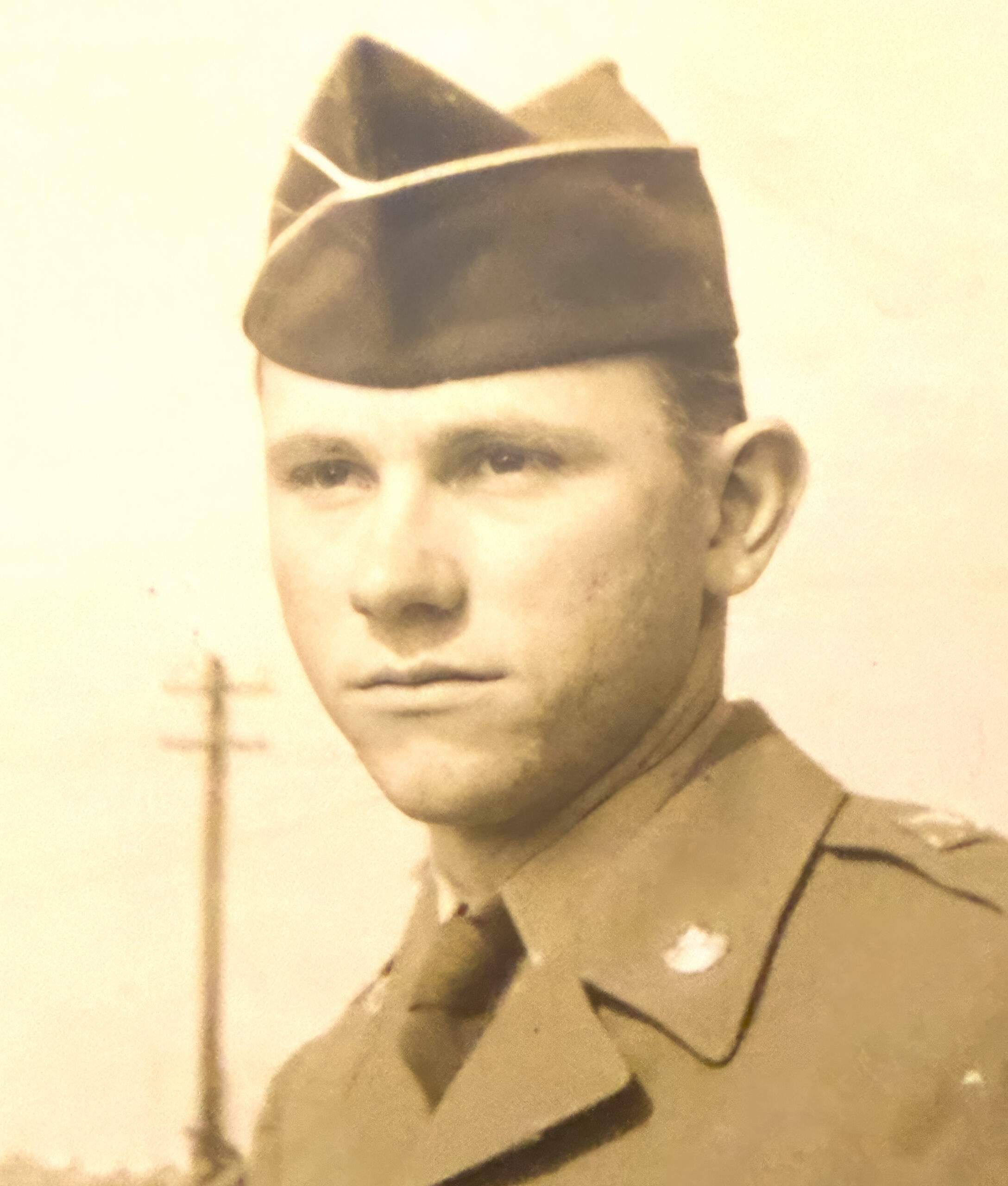
PHOTO PROVIDED / THE VILLAGE REPORTER
UNIFORM… Delta native Howard Reckner in his Army uniform while serving in Korea for the United States Army.
By: Jacob Kessler
THE VILLAGE REPORTER
jacob@thevillagereporter.com
The story of Howard Charles Reckner of Delta is one of quiet strength, steadfast duty, and deep humility, the kind that defines an entire generation of Americans who served during the Korean War.
Born in 1933, Howard grew up in Delta and spent his youth in a world still recovering from World War Two. At just seventeen years old, he joined the United States Army, celebrating his eighteenth birthday while in basic training at Fort Knox.
Encouraged by his brother, who was serving in the 24th Division, Howard enlisted and found himself on a very different path.
His brother had remained stationed in Japan, while Howard was sent to the front lines of Korea as a tank driver with the 25th Infantry Division, a role that would test his courage and endurance in ways few could imagine.
After completing Chemical, Biological, and Radiological School in Japan, Howard landed at Busan and was soon sent north to the Imjin River, a critical and fiercely contested line that separated United Nations and enemy forces, with American troops serving as part of the international coalition defending South Korea.
“We were on one side, and the enemy was on the other,” he recalled. “They were always trying to cross the river, and that is why we had patrols out and guards at night. We were trying to end the war, but even during the peace talks at Panmunjom, they kept coming.”
Conditions were brutal. Winter temperatures plunged to 30 and 40 degrees below zero, with bitter winds sweeping down from Manchuria.
Summer brought the opposite extreme with sweltering heat, no trees for shade, and sleepless nights. “It made me grow up in a hurry, and I needed that,” Howard reflected.
Howard served from 1952 to 1954, helping see the war through to its uneasy ceasefire. During that time, he drove Sherman tanks, sometimes so overworked that their transmissions had to be shifted by foot because of the heat.
Later, near the end of the war, his unit received the newer Abrams tanks, which had automatic transmissions and were far easier to handle in combat. For his service and dedication, Howard was awarded two Bronze Stars, a recognition of his bravery and steadfastness while in country.
Many who served in Korea returned home to a nation still coming to terms with the conflict. For a time, political leaders referred to it as a “police action,” though those who were there understood the realities of war all too well.
History would later come to know it as “the Forgotten War,” a label that reflects how easily its memory faded in the years that followed. Yet every man and woman who served in Korea, including Howard, played a vital part in defending freedom during one of the most difficult and overlooked chapters in American history. Their sacrifices remain honored and remembered today.
When he came home to Delta, Howard began building a new life. His mother had passed away when he was fifteen, but his father was still living, and the young veteran was determined to make his own way.
With guidance from the Veterans Administration, he took a job in Toledo and entered an apprenticeship as a tool and die maker. He worked in that trade for several years, later joining Rimer in Waterville, where he remained for more than twenty years before retiring at age sixty-two.
Howard and his wife have shared 69 years of marriage, raising two children, a son and a daughter, and building a lifetime filled with family, friendship, and quiet accomplishment.
Through the decades, he remained proud of his service but never boastful. “We just did our job and did what we were supposed to do,” he said. “I met a lot of super nice people. Some guys said, ‘I never hear you complaining. I said, you were drafted and I volunteered.’ But I have never regretted it.”
From the frozen banks of the Imjin River to the warmth of small-town Ohio, the life of Howard Charles Reckner stands as a testament to duty, resilience, and the enduring strength of the American spirit.
His legacy, like that of all who served in Korea, reminds us that freedom is not only defended in great battles, but also in the quiet perseverance of those who carried its burden with honor.

